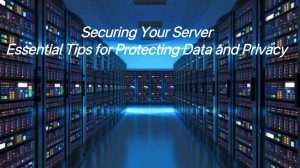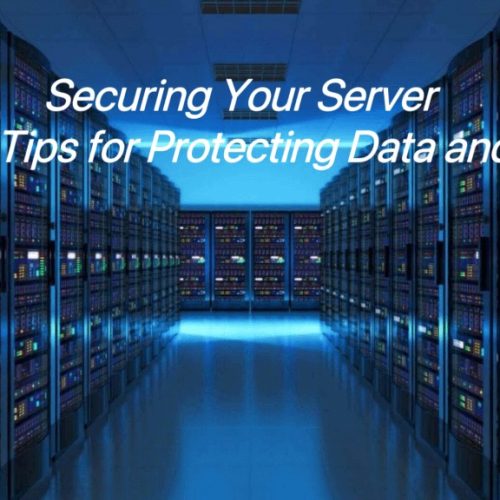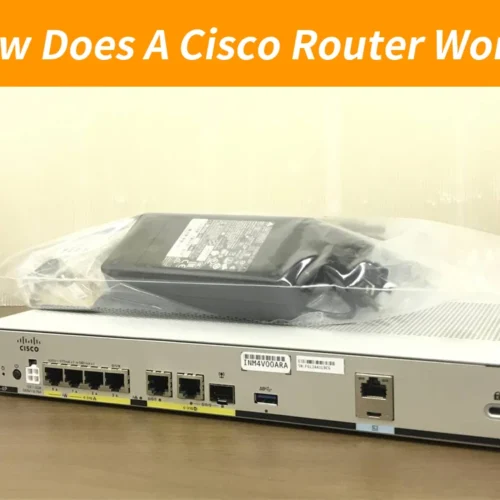Introducción:
En esta era actual de transformación digital, los datos son el nuevo oro. Las organizaciones dependen de servidores para almacenar grandes cantidades de datos valiosos. Por lo tanto, proteger estos datos es de suma importancia y la seguridad nunca debe ser una ocurrencia tardía.. Sin embargo, Proteger su servidor es un proceso que requiere conocimiento., tiempo, y atención. This article aims to guide you through the essentials of server security:

1. Recognizing the Importance of Server Security
Hosting servers is about storage and access. Además, it is also the duty to protect the data of your clients, your company’s intellectual property. Cyber threats are ever-evolving and failure to secure your server can lead to costly data breaches, downtime. More worse still, complete loss of data.
2. Identifying Your Server’s Vulnerabilities
Every server is easy to vulnerabilities, from the software installed, the users, the type of data stored and the network. So knowing your server’s vulnerabilities is the first step towards building a robust security system. Start with conducting a comprehensive risk assessment to identify potential risks and vulnerabilities.
3. Securing the Operating System
The operating system is the heart of your server. Safeguard it by:
(1) Installing and enabling a reliable firewall
(2) Regularly updating the OS and all installed software to keep them free from known vulnerabilities
(3) Disabling unnecessary services to reduce potential attack surfaces
(4) Enforcing strong password policies and using multi-factor authentication
(5) Regularly scanning for malware and other malicious activities
4. Employing Encryption
5. Data Backups
Implementing regular data backups is an integral way to keep your servers back up and running quickly when any accidental events happen. Sin embargo, taking this precautionary measure one step further entails the utilization of offsite backups, which provide enhanced security and robust protection against an array of potential threats that could adversely impact your onsite server.
By adhering to a defined backup schedule, you establish a routine practice of duplicating critical data and storing it separately from your primary server infrastructure. Exactly, this proactive approach ensures that even in the face of unforeseen disasters such as hardware failures, natural disasters, or malicious attacks, your valuable and sensitive information remains secure and recoverable.
Offsite backups, in particular, offer distinct advantages in terms of safeguarding your data. As these backups are stored at a separate physical location from your onsite servers, they are inherently immune to the risks and vulnerabilities that may affect your primary server environment. Además, by opting for offsite backups, you minimize the potential for data loss and increase your organization’s resilience against a wide array of threats.
6. Role of Physical Server Security
Even with robust digital defenses in place, unauthorized physical access to servers can result in severe and irreparable data loss. Por lo tanto, it is paramount to ensure that servers are housed within a secure environment, with access restricted exclusively to authorized personnel.
(1) This begins with choosing a secure location for housing servers, one that offers controlled access and mitigates the risk of unauthorized entry.
(2) It is crucial to limit access to servers to only those individuals who possess the requisite authorization. Each server should be protected by unique credentials and access privileges should be granted on a need-to-know basis.
(3) It is imperative to maintain strict inventory and tracking protocols for server hardware. Regular inventories should be conducted to ensure that all server equipment is accounted for and any discrepancies are promptly investigated.
(4) There should also be a well-defined procedure in place for monitoring and responding to physical security incidents.
7. Regular Server Audits
Regular server audits play a crucial role in upholding robust server security practices.
(1) One of the primary objectives of server audits is to identify any vulnerabilities or weaknesses in the server infrastructure. By conducting systematic and comprehensive assessments, organizations can proactively identify potential security flaws and address them before they are exploited by malicious actors.
(2) Además, Server audits provide insight into server performance. By analyzing server metrics, such as CPU usage, memory utilization, and network traffic, IT personnel can make informed decisions regarding capacity planning and resource allocation.
(3) Finalmente, Server audits help streamline maintenance routines by identifying outdated software versions, unpatched vulnerabilities, or configuration errors. These audits allow organizations to stay up to date with the latest security patches, software upgrades, and best practices, ensuring that servers remain resilient against emerging threats.
All in all, Regular server audits not only address security concerns but also contribute to overall compliance with industry standards and regulations. Organizations are often required to adhere to specific security frameworks, such as the Payment Card Industry Data Security Standard (PCI DSS) or the General Data Protection Regulation (GDPR).
8. Educating Your Team
An essential aspect of maintaining server security is training your team. So it is crucial that your staff members fully understand the importance of security procedures and actively comply with them.
(1) Start by establishing clear security protocols and guidelines, ensuring that every team member is familiar with them. This includes creating strong and unique passwords, regularly updating them, and implementing multi-factor authentication. Train your staff on how to identify phishing attempts, suspicious emails, and other common social engineering techniques that cybercriminals employ to gain unauthorized access.
(2) Regularly conduct security awareness programs and workshops to keep your team updated on the latest threats and best practices. This education should cover topics such as data encryption, secure file transfers, and the importance of keeping software up to date.
(3) As for Simulated phishing exercises, it is valuable to train your team to recognize and handle phishing attempts effectively. These exercises expose employees to realistic simulations of phishing emails, allowing them to practice discerning legitimate communication from potentially malicious ones. By providing immediate feedback and additional training as necessary, you can reinforce good security practices and promote a culture of vigilance within your organization.
9. Conclusión
Securing your server involves an array of strategies, none of which should be ignored. Understanding the vulnerabilities, enforcing good practices, backing up data, and educating your team are just as important as employing top-tier security software. In a world where data is critical, let’s prioritize its safety. By taking the time to invest in server security, you safeguard your business, protect your customers, and gain peace of mind. Stay safe, digitally!











